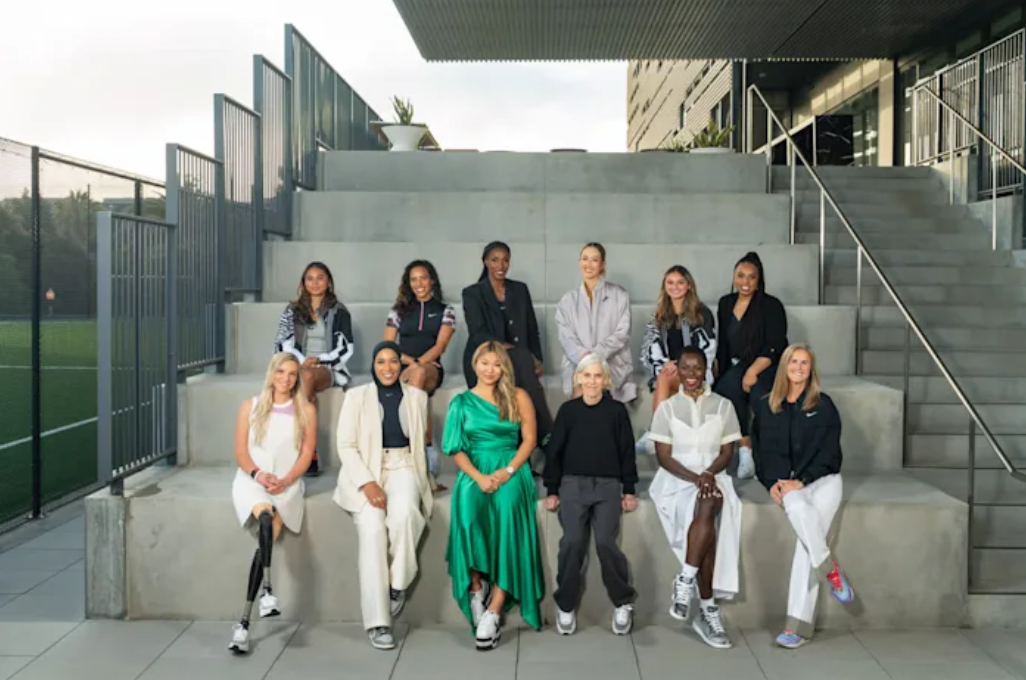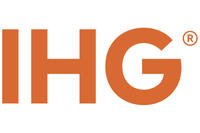“When I graduated from college, women’s clothing came in black, white, gray, navy and light blue,” Lisa Leslie said, referring to the limited choices women had in the sportswear category. “I said, ‘Don’t you guys have any pink?'”
A lot has changed since Leslie joined Nike in 1996 and became a major player in the newly formed Women’s Professional Basketball Association (WNBA). Nike has always worked with female athletes – Olympic gold medalist Mary Decker became its first sponsored athlete in 1978 and Nike signed Joan Benoit Samilson to its roster of athletes in 1979 – but the company is taking a more 360-degree all-encompassing approach to doubling down on its investment in women. The company outlined the plan at its “Her Future 50” event in Los Angeles last week.
Professional female athletes continue to be important to Nike. The company announced earlier this year that it would invest in the WNBA and recently signed its first high school athletes, soccer players and sisters Alyssa and Gisele Thompson. The Thompson sisters were joined by Chloe Kim, Ibtihaj Muhammad, Brandi Chastain, Leslie, Benoit and the evening’s host, Tudor Oyegnine, at a dinner held at Nike’s Los Angeles headquarters.
But Nike is also trying to meet every woman, no matter where they are – “If you have a great body, you’re an athlete,” Nike co-founder Bill Bowerman often quoted during the event. Nike partnered with choreographers like Parris Goebel, musicians like Megan Thee Stallion, Billie Eilish and Rosalía, and Nike’s yoga instructor Rebeckah Price, who Tuesday morning at Nike’s Blue Ribbon Sports Community Center (the company’s first retail store in Santa Monica, Calif.) led a meditation. It is ensuring that this diversity permeates its products.
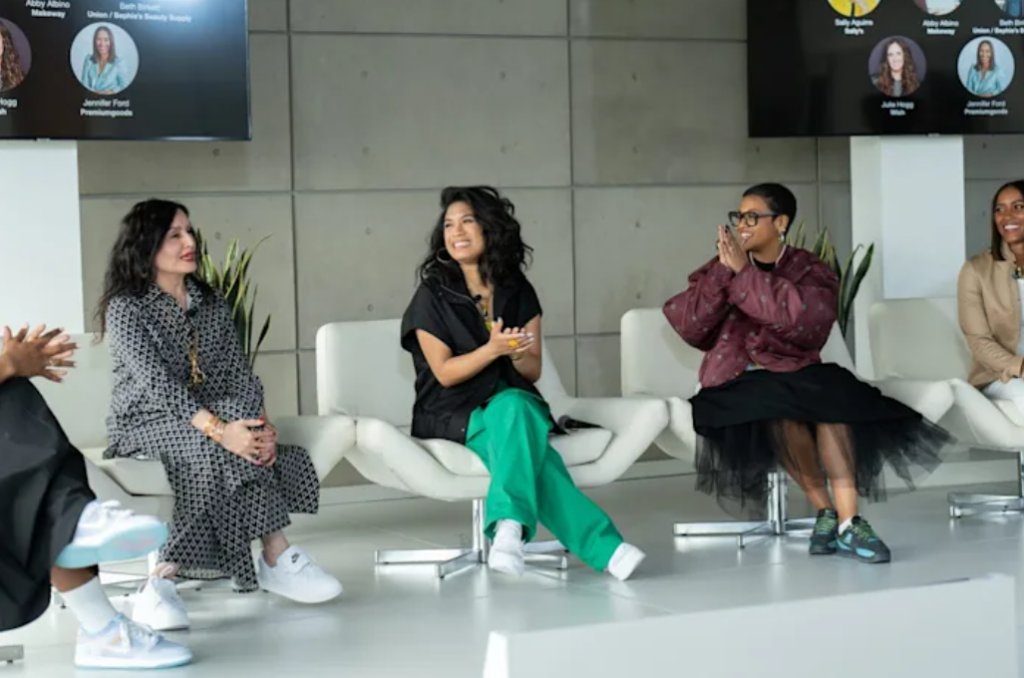
“Some women want their bottoms to be slightly more dynamic,” says Tania Flynn, Nike’s vice president of women’s product design. “I learned from Meghan that when she’s on stage, she wants to feel like she’s walking in leggings.” Flynn spoke on a panel detailing how Nike invested in science and research to understand women’s bodies, leading to a broader range of sports bras and leggings.
While bottoms have become an everyday necessity for many women, Nike is also interested in catering to women’s needs in terms of lifestyle and fashion. It showcased the collection with French brand Jacquemus, which uses innovative, lightweight fabrics to create fashion-forward silhouettes, as well as the upcoming “Yoon in Ambush” and Martine Rose.
Nike is supporting women at the retail level. Beth Birkett, co-owner of Union and owner of Bephies Beauty Supply, spoke at a panel dedicated to women retailers, including Sally Aguirre of Sally’s Shoes, Abby Albino of Makeway ‘s Abby Albino, Premium Goods’ Jennifer Ford and Wish Atlanta’s Julie Hogg.
The alliance has a longstanding relationship with Nike, but Birkett began working with the team through her brand Bephies Beauty Supply, which she launched during the 2020 outbreak.
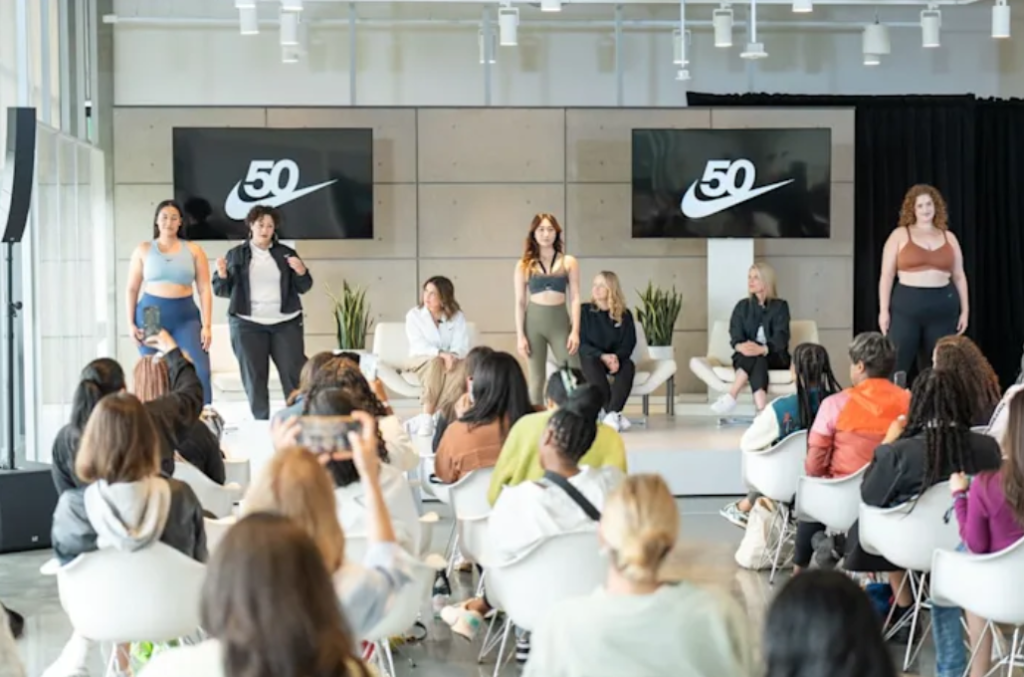
“I’ve always wanted to do something about it. As a member of the league, I’ve always felt like I should have a strong female perspective. But I had so much to do, and I never really did.” Birkett said. “But the epidemic gave us time, so I started using the brand as a diverse market and working with Jordan. I really want to inspire women, especially black and brown women, to get into the creative world and start creating, whether it’s shoes or clothes. Women help drive the culture forward.”
Birkett revealed that the Union x Nike Cortez sneaker, inspired by Gibbs’ favorite Ethiopian hat, woven into the sneaker, will be available in four different colors and released this year.
“It’s a very different kind of Cortez. It’s a silhouette that’s very important to the Latino community and the black community. So it’s really different to say it in Ethiopian.” Birkett said.
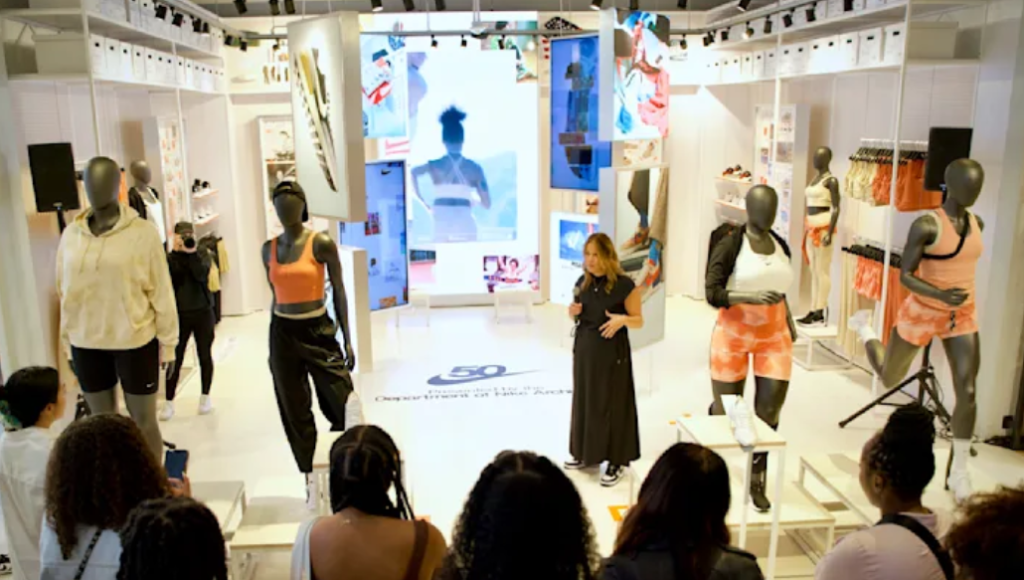
Birkett also added that she has a collaboration with Jordan Brand under Bephies Beauty Supply. It will be a Jordan 7 with the Bephies Beauty Supply logo, and the line will also include apparel.
“I’m just saying this now, but I really don’t see (the challenges I face as a woman of color) as a challenge,” Birkett said when Karie Conner, vice president/general manager of Nike’s North American children’s business, was asked about the obstacles she faces in the industry. “All the experiences I’ve had working in this industry and all the things I want to be seen for, I think they’ve all become my superpowers and made me who I am. I mean, you have to work harder, and it’s definitely not easy. And then you have to say it out loud, too. So I learned about myself and I’m not afraid anymore. You’re going to meet some bullies and boys and they’re going to say, ‘Why are you doing this?’ But you just have to learn how to fight for yourself and prove them wrong.”
